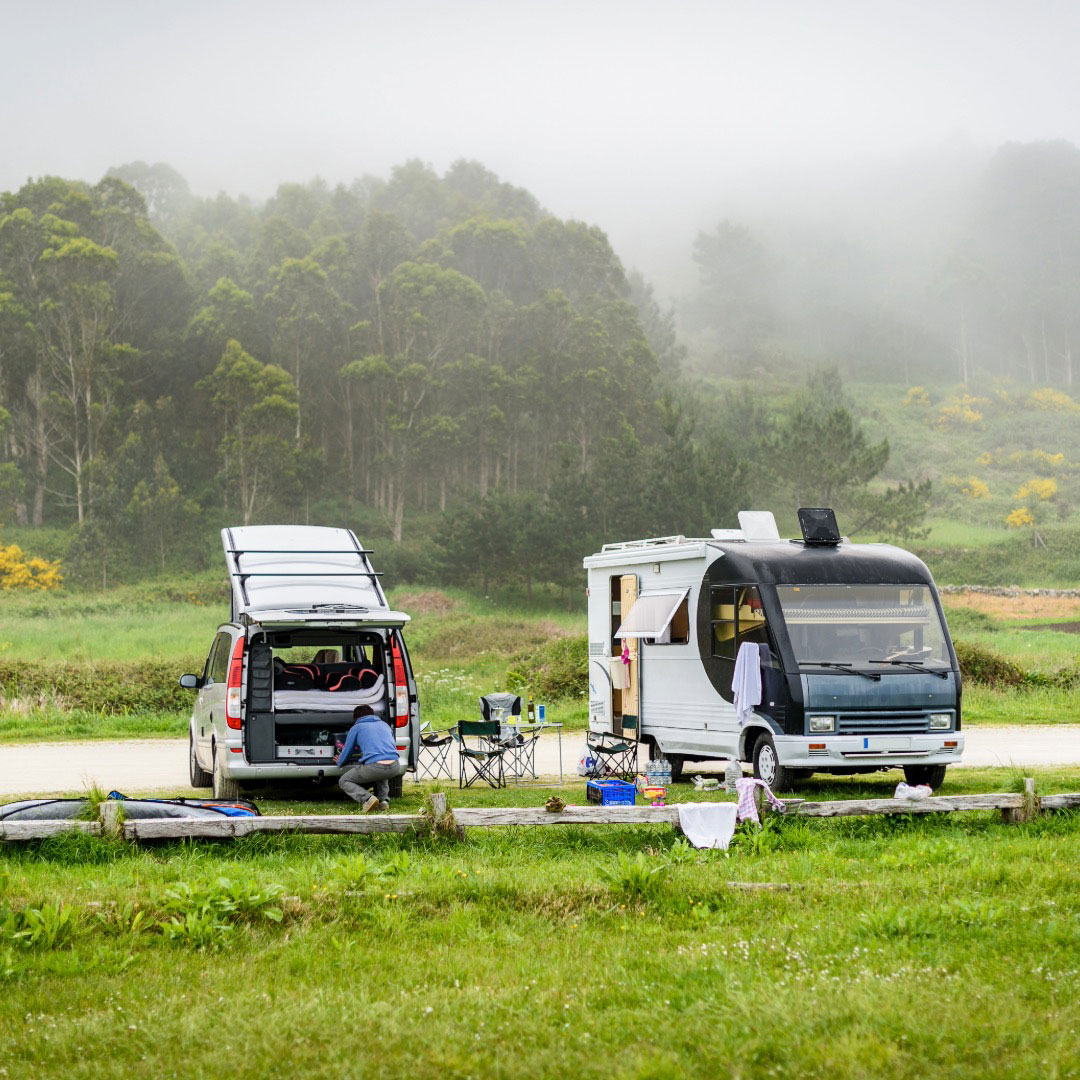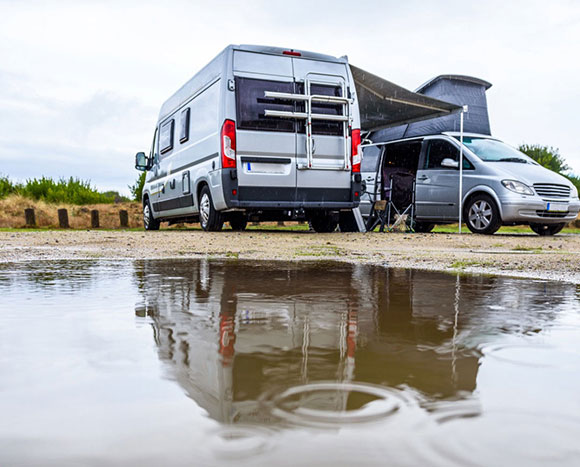Summer beckons with the promise of unforgettable RV adventures. However, even the most meticulously planned trip can encounter severe weather such as tornadoes, thunderstorms, and hurricanes. Here are some key tips to ensure your RV adventure stays safe and enjoyable, even when the skies turn stormy.
Stay Informed with Real-Time Weather Updates
Staying vigilant and informed is essential for a safe camping experience. Keep a close eye on the weather, both visually and through available internet or cell service. Enable severe weather alerts on your phone and download weather apps to stay updated with the latest information. Being aware of forecasts early on enables better preparation for any potential natural disasters. Additionally, investing in a weather radio ensures reliable forecasts even in areas without internet access.
Preparing for Severe Weather as an RVer
Prepare for severe weather during hurricane season, which runs from June 1 to November 30. Campers along the coast should be ready for tropical storms with winds of 39 to 73 mph. These storms can escalate into hurricanes, so stay safe with these tips for RVers in stormy conditions.
-
Secure Your RV Secure loose items such as chairs and grills to prevent them from becoming airborne in high winds. Close and lock outside storage compartments, retract the awning, and firmly latch windows. Prepare your emergency kit for easy access.
-
Secure Your Site Secure your camping site by inspecting for potential hazards like weak branches on trees and shrubs that could pose a threat during a storm.
-
Prepare the Interior Keep important documents in waterproof bags. Seal all doors and windows to prevent water and wind infiltration.
-
Evacuation Plan Have a clear evacuation plan in place. If evacuation becomes necessary, leave early with a full gas tank. Remember, it's safer to evacuate than to ride out a hurricane in your RV. Pack your motorhome, gather essential documents, and evacuate to a safe location.

Actions to Take During a Hurricane Watch and Warning
In the event of a Hurricane Watch or Warning while RV camping, swift action is imperative for safety. RVs are vulnerable to high winds, making evacuation the best course of action. Prior to departure, consult local forecasts and weather apps to ensure a clear path away from the storm's trajectory. Avoid driving through flooded areas en route to a secure location. Here are additional guidelines for safeguarding yourself during a Hurricane Watch or Warning:
-
If you must leave your RV, seek out a secure location to park it. Ideally, follow the advice of the Florida RV Trade Association (FRVTA) by attempting to secure your RV in an enclosed storage facility or parking adjacent to a sturdy building. When parked at a campsite or in open terrain, opt for an elevated location, far from large trees, and position the RV to face the wind with the side containing fewer windows.
-
Ensure your RV is protected. According to the FRVTA, begin by emptying holding tanks and filling all available water tanks to increase weight and stability. Shut off propane cylinders and shield the regulator. Cover vents and the air conditioning unit to prevent water infiltration. Secure loose items both inside and outside the RV to minimize potential hazards.
Post-Hurricane Safety Tips for RV Campers
After the storm passes, the danger might not be over. Just as it's crucial to prepare before a major storm, RV campers must also be ready for the aftermath. Here are essential tips to ensure safety for you and your loved ones following a hurricane:
-
Get ready for extended periods without power. Even mild or moderate tropical storms can cause trees and power lines to fall, resulting in extended periods without electricity. The severity of the storm correlates with the duration of outages. While many RVs are equipped with built-in generators, some rely solely on hookup power. Ensure you have an aftermarket or portable generator in your emergency kit to maintain essential power.
-
Be prepared for road closures and obstructions. Although authorities have plans in place to swiftly clear major roads, it may take several days for most routes to reopen fully. Secondary streets could remain impassable for even longer periods. Never attempt to drive through flooded areas, as this poses significant risks to personal safety.

Read next;
10 Best RV Lakeside Campgrounds You Don’t Want To Miss.
Pawsome Adventures: Making The Most Of RV Travel With Your Adorable Pets.







